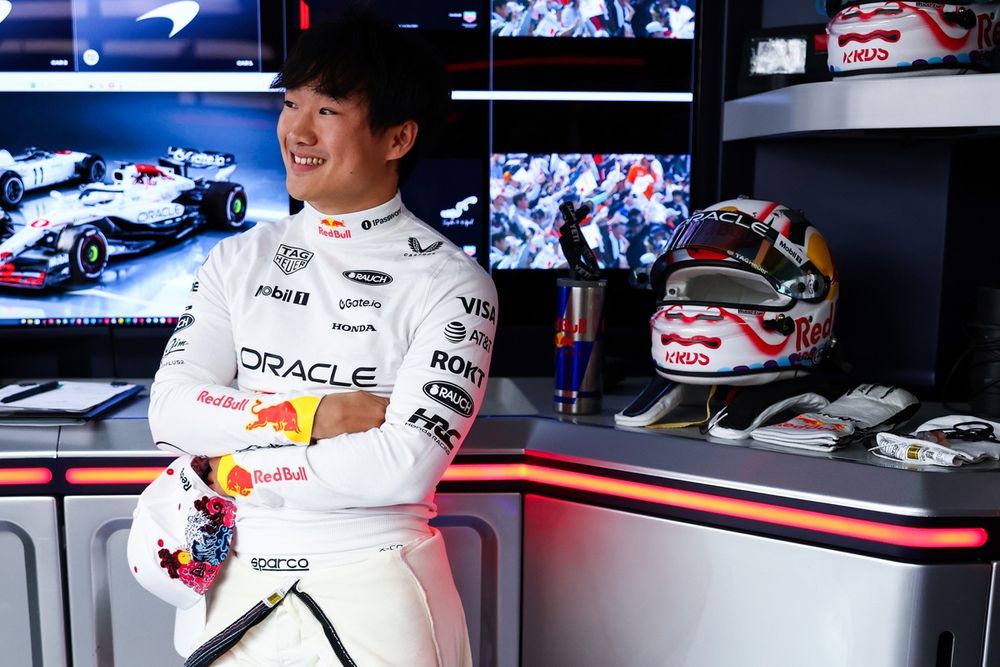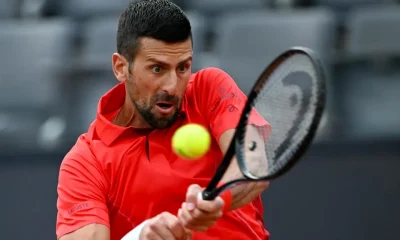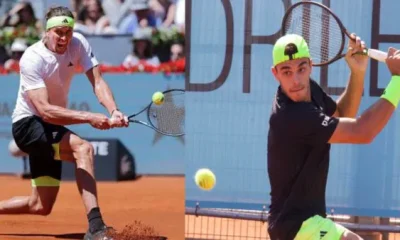The Bahrain weekend is different for a number of reasons. The abrasive tarmac at Sakhir makes tyre degradation a crucial factor, and three DRS zones should provide drivers with more overtaking opportunities than at Suzuka. This means that the delta for a successful move will be (much) smaller than a week ago.

Another factor is the weather. Bahrain promises to be the hottest F1 weekend of 2025 so far, which could affect the pecking order. When Red Bull was the dominant force in previous years, Helmut Marko often said “the hotter, the better”. But in Japan, Verstappen made it clear that the opposite is now true, underlining that the cooler track temperatures actually helped him on Sunday.
That means Bahrain is a completely different challenge, but an interesting one. This weekend should give us a clearer picture, especially as the teams have already been here for winter testing. Which team was the benchmark then? Indeed, McLaren. It highlights that Verstappen faces an even bigger challenge this weekend, although it’s already an achievement in itself that he’s just one point off the championship lead after three races.
Time for Tsunoda to show something
Red Bull decided to replace Lawson with Tsunoda for two main reasons: Lawson’s lack of progress and the need for a driver capable of scoring points for the constructors’ championship, while also helping with the development of the RB21.
At Suzuka, Tsunoda showed some encouraging signs, even if the final standings didn’t fully reflect that. However, these encouraging signs also helped to take some of the initial pressure off his shoulders.

It’s clear that Tsunoda needs time to gain confidence in the car and find its limits. The championship is still long, but the problem is that Red Bull doesn’t have the luxury of time to waste. For Lawson, the goal was to stay within three tenths of Verstappen – and now the same applies to Tsunoda. Yuki finally got the chance he was hoping for, but now it’s time to deliver results where Lawson failed. The goal is clear: score points.
Will Sainz continue to struggle?
The recruitment of Carlos Sainz is one of James Vowles’ biggest – and most visible – victories as he attempts to drive Williams back to the front of the pack. And it’s not only that the Spaniard is a brilliant racer; it also sends a powerful message to the entire paddock: when a driver of his calibre joins a team that has struggled at the rear of the grid in recent years, it means there’s solid cause to believe in the project.
But it’s still Alex Albon who is delivering results for Williams. That doesn’t mean that Sainz doesn’t have time or is suddenly under pressure. Both he and Vowles have stressed that this is a long-term project, and if the results don’t come immediately, that’s no reason to panic. Sainz is one of the hardest working drivers in F1 and he will eventually find a way to adapt to the new machinery.

But Bahrain will be an important milestone. Sainz was quick at the Sakhir track during pre-season testing, saying himself that the lap times came “naturally” to him – but he’s yet to find the same feeling during race weekends. Can he unlock more when he returns to the track he’s already been to with Williams?
Is Racing Bulls now a top midfield team?
Pretty much, and it’s been that way right from the start. A Racing Bulls car has qualified as the top midfield team in every qualifying session so far this season: Tsunoda took an impressive fifth in Melbourne and then eighth in Shanghai sprint qualifying, while Isack Hadjar qualified seventh for the grands prix in China and Japan.
Apart from Tsunoda’s sixth place in the Chinese sprint race, the team had failed to close the deal in the races, but Hadjar changed that with a strong drive to take the chequered flag in eighth place last Sunday in Japan, confirming Racing Bulls’ status as one of the top midfield teams in 2025.
The goal now is to keep this momentum going and start providing outcomes on a consistent basis.
















